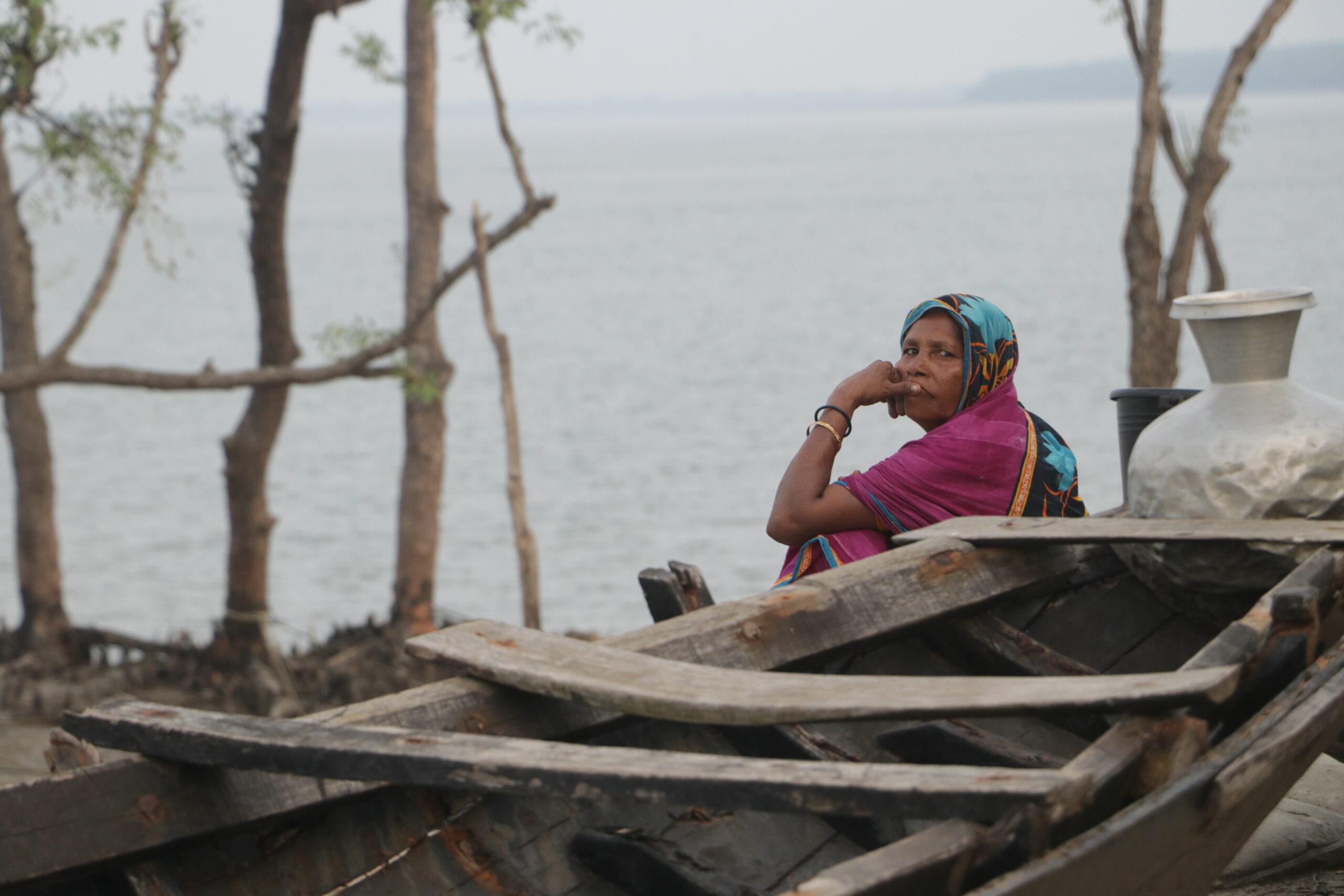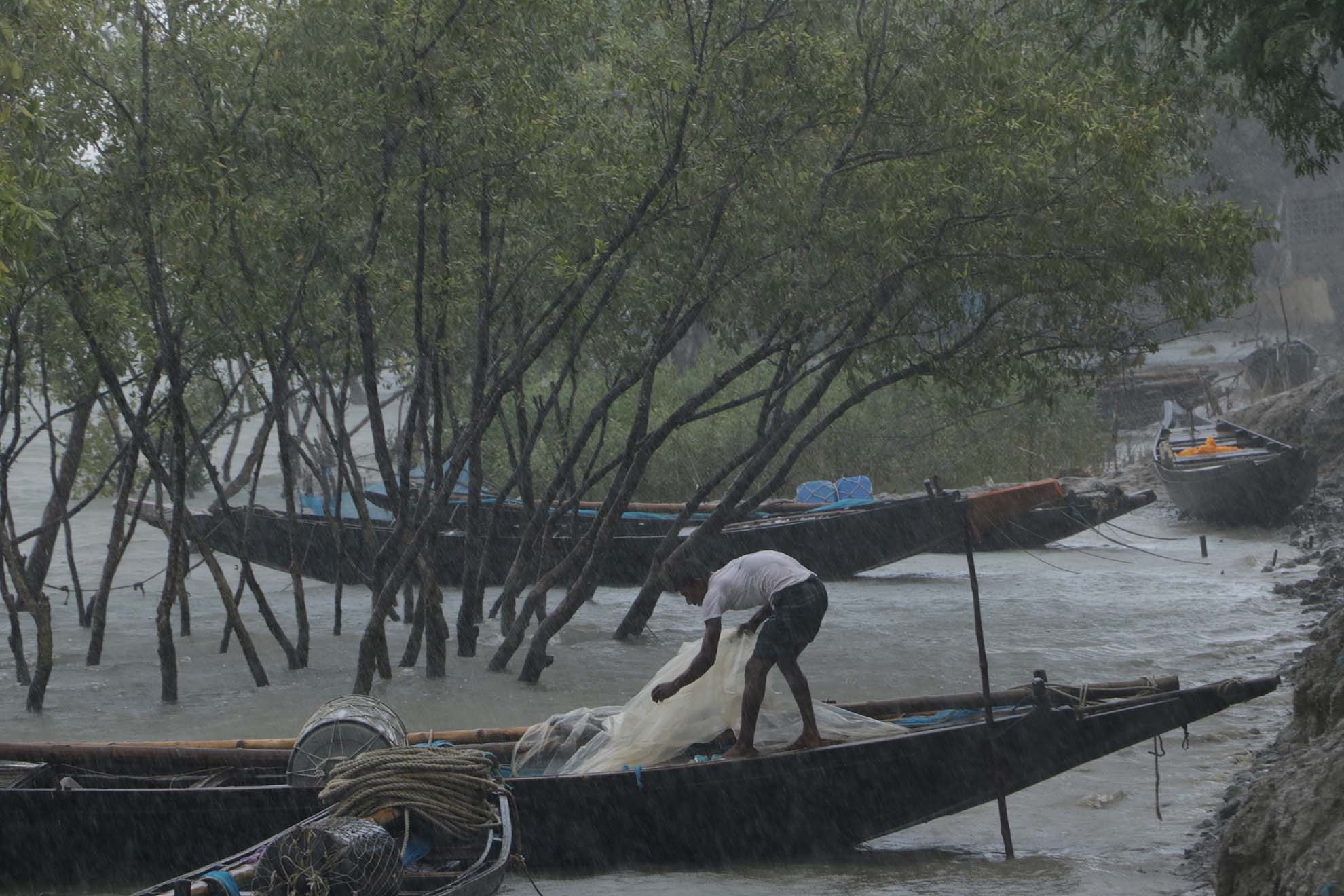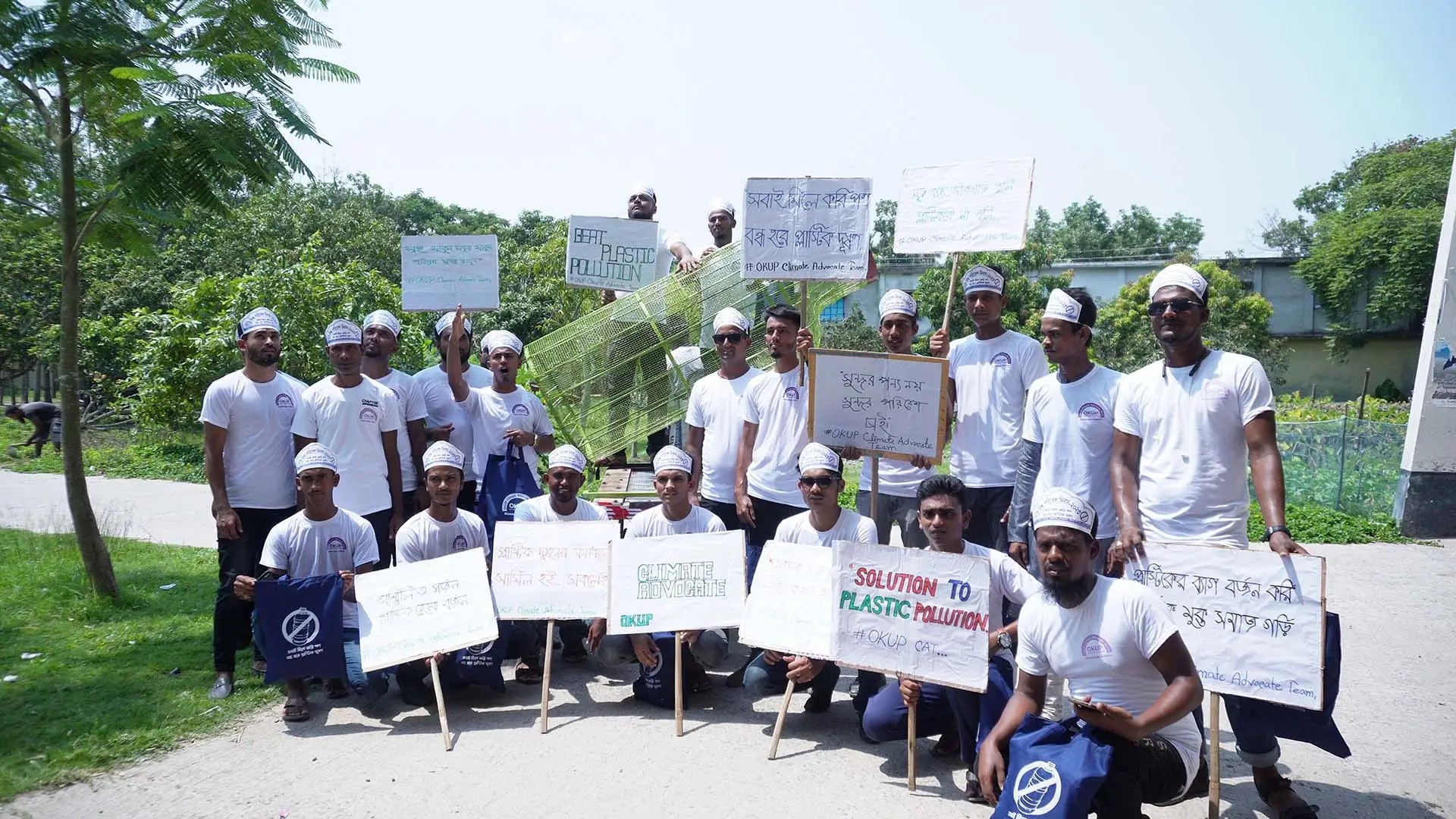- Loss and Damage Research Observatory
- admin@lossanddamageobservatory.org

Non-government
Areas of Expertise:
Nature of engagement:
Overview
OKUP is a grassroots migrant workers organization in Bangladesh established in 2004 by returnee migrant workers and their families. We hold the issues of migrant workers and communities at the heart of our organization and follow a survivor-led community approach in our interventions. We work to create agency, empowerment and enhance capacities of migrant workers, families and communities to claim rights by holding duty bearers accountable. We gather data and evidence to bring our voices and perspectives into the policy discourse. Our interventions address the challenges and vulnerabilities of migrant workers in the context of migration and climate change.
"Integrating ‘Rights-based Solutions’ for sustainable adaptation and resilience, based on the fundamental human rights principle of “Right to Stay, Right to Move” into policies and programs at all levels - local, national, and international aims to minimize and address loss and damage resulting from the interconnected challenges of climate change and human mobility."
Saleemul Huq Memorial Scholarship: Project Update

2024-09-09 Social disruption (migration and displacement)
The climate-induced disasters in Bangladesh have become more frequent and intens...Read more

Category: Social disruption (migration and displacement)
Region: Asia
Country: Bangladesh
Village: Southeast Coastal district in the Sundarbans
Description: The climate-induced disasters in Bangladesh have become more frequent and intense in the last 15 years. The southwest coastal districts in the Sundarbans regions are much more prone to climate-induced disasters. The people in the region encounter multiple disasters every year and become victims of a partial or complete loss and damage to their assets, livelihoods, and wellbeing. The piecemeal adaptation approaches often fail and trap people in debt. In such a context when there is hardly any option to cope and survive, many people migrate to a new place within the country or abroad to find employment to support their families. The unethical and unfair recruitment practices and a lack of protection push those people into further exploitation, trafficked, and forced labour conditions at home or abroad and increase their vulnerabilities. The research aims to create evidence on the impacts of frequent and intensified disasters in the form of economic and non-economic loss and damage, its link to forced and unsafe migration, and the increased vulnerability and violations of fundamental rights of climate-induced migrants and their communities. The findings will contribute to shaping policy discourse on the importance of ‘rights-based approach: rights to stay, right to move’ to minimize and address loss and damage caused by climate change and mobility and build sustainable adaptation and resilience. The research intends to employ a mixed-method approach to collect quantitative data and capture the lived experiences of the affected people.

July 2024 Green and Low-Carbon Economy
The objective of the study was to explore how finance to cover the cost of loss and damage from climate change can See More

July 2024 Green and Low-Carbon Economy
The objective of the study was to explore how finance to cover the cost of loss and damage from climate change can See More

July 2024 Green and Low-Carbon Economy
The objective of the study was to explore how finance to cover the cost of loss and damage from climate change can See More

July 2024 Green and Low-Carbon Economy
The objective of the study was to explore how finance to cover the cost of loss and damage from climate change can See More

July 2024 Green and Low-Carbon Economy
The objective of the study was to explore how finance to cover the cost of loss and damage from climate change can See More

July 2024 Green and Low-Carbon Economy
The objective of the study was to explore how finance to cover the cost of loss and damage from climate change can See More

July 2024 Green and Low-Carbon Economy
The objective of the study was to explore how finance to cover the cost of loss and damage from climate change can See More

July 2024 Green and Low-Carbon Economy
The objective of the study was to explore how finance to cover the cost of loss and damage from climate change can See More

July 2024 Green and Low-Carbon Economy
The objective of the study was to explore how finance to cover the cost of loss and damage from climate change can See More

July 2024 Green and Low-Carbon Economy
The objective of the study was to explore how finance to cover the cost of loss and damage from climate change can See More

July 2024 Green and Low-Carbon Economy
The objective of the study was to explore how finance to cover the cost of loss and damage from climate change can See More

July 2024 Green and Low-Carbon Economy
The objective of the study was to explore how finance to cover the cost of loss and damage from climate change can See More
NGO Affairs Bureau |
2008-04-24
2018-01-01 - Present
Steering Group Member
2022-04-01 - Present
2007-09-01 - Present
2012-07-07 - Present
2016-01-07 - Present
2017-01-08 - Present
2016-03-04 - Present
2018-01-01
OKUP follows a ‘Human Rights-Based Approach’ to address challenges caused by climate-induced migration. We work to enhance transformative capacity and skills, particularly of youths and women for sustainable adaptation and resilience, uphold human rights and justice for the survivors of unsafe migration, trafficking and forced labour, and carry out evidence-based advocacy.
2004-01-01
We work to promote informed migration by choice, safeguard rights and justice of survivor migrants, uphold health and welling, and sustainable social and economic reintegration of the vulnerable returnee migrants. We also work to build self-sustaining migrant communities by enhancing agency, unity and empowerment.

Photo Credit: - OKUP

Photo Credit: - OKUP

Photo Credit: - OKUP
